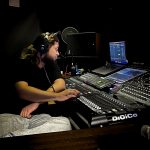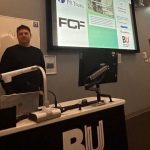As exciting as starting university can be, there are a few differences from school, Sixth Form and college, which are important to know about to make the most of your studies and student life during your degree.
One of the major differences is how timetable looks and the different types of classes you will experience across your degree. Unlike school, you will likely have classes at different times of the day with some days not having any classes at all. However, this makes for an ideal time to complete your assigned academic work, catch up with friends and coursemates or prepare for upcoming lectures by using the reading lists and any information added to Brightspace ahead of the session. Additionally, it also gives more flexibility to work a part-time job or engage in careers services.
The structure of classes will also look different with multiple different types taking place across your degree. These include lectures, seminars, tutorials and practicals, similar to the one below:

Lectures are where the lecturer will provide you with information on a particular topic often with a presentation whereas seminars are more interactive with discussions, activities and questions being utilised to enhance understanding of the content being taught. Tutorials are your opportunity to engage with teaching staff on your course to talk about how you are finding the course and progress.
Some courses will also have simulation and practical sessions in rooms designed to replicate the environments you would be working in after your degree. This allows you to develop skills you will need in your career to build confidence and competence before you begin work. For students studying healthcare degrees, you will have to attend mandatory placement to meet the requirements alongside simulation sessions to gain hands-on experience in hospitals or community settings. These sessions can last between 1 to 3 hours with placement blocks lasting up to 10 weeks.
Assessments may also vary compared to your previous experiences at school and sixth form. Sometimes you may have exams but you may also experience other types of assessments, such as essays, practical exams and presentations. This allows you to show that you understanding of the course content in multiple ways. As some degrees have modules you can choose from, you will be able to factor in the assessment type to help you make your decision and do the best that you can!
Bournemouth University also offers multiple ways to develop your employability skills and start building your CV. This starts with the CareersBU Team which can advise and review your CV, help to start and developing your LinkedIn Page as well as helping you thrive in interviews and  overcome any anxieties around application processes. Additionally, the CareersBU Team run the Graduate Skills+ Programme. Throughout this scheme, you will have the opportunity to start developing the interpersonal skills you will need for a successful career through career-orientated activities and interacting with top employers, such as the NHS, IBM and Marriot. Upon completion of the programme, you will receive a certificate and be invited to an awards evening to celebrate your progress so far. For students on degrees where placement years are offered, the Careers Team can also provide advice on securing a placement as well as advising on how to secure internships.
overcome any anxieties around application processes. Additionally, the CareersBU Team run the Graduate Skills+ Programme. Throughout this scheme, you will have the opportunity to start developing the interpersonal skills you will need for a successful career through career-orientated activities and interacting with top employers, such as the NHS, IBM and Marriot. Upon completion of the programme, you will receive a certificate and be invited to an awards evening to celebrate your progress so far. For students on degrees where placement years are offered, the Careers Team can also provide advice on securing a placement as well as advising on how to secure internships.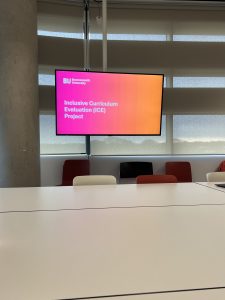
Bournemouth University has multiple opportunities for you to put these skills into practice whilst making an impact on the BU Community. One example of this is working as a Student Reviewer for the Inclusive Curriculum Evaluation Project, where you attend all types of classes and review online module content to make the degree curriculum more accessible for all students undertaking the degree. Moreover, other student positions allow you to represent your course and university on a wider level. For instance, becoming a Student Representative on your degree give you the opportunity to engage with Academic Staff to make alterations to your course based on feedback. As a Student Ambassador you are able to represent and promote Bournemouth University at Open Days, Summer Schools, social media and more. Some of these positions are also paid roles, allowing you to develop employability skills and earn money around your studies!

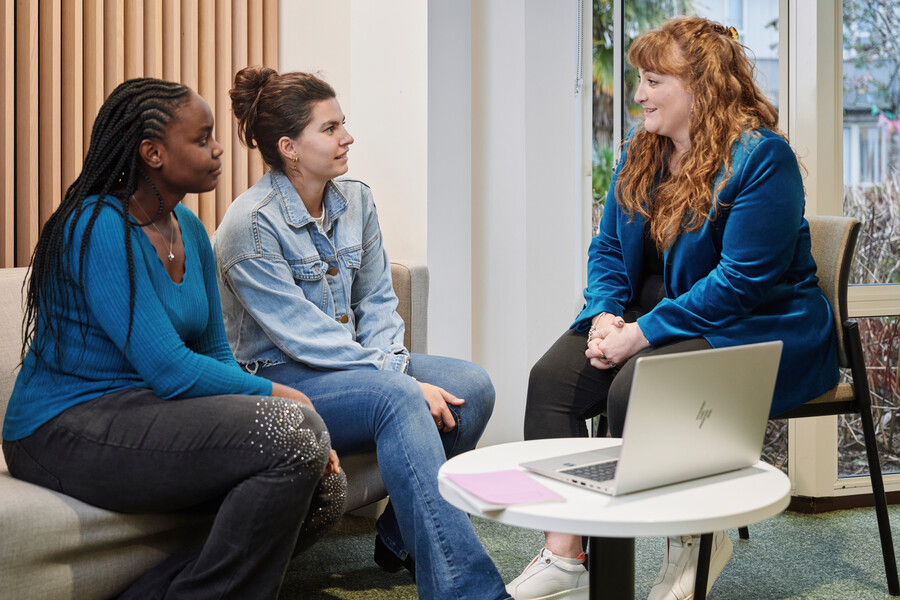
 Part-time paid roles for students at BU… and their perks!
Part-time paid roles for students at BU… and their perks! A Guide to Student Jobs: Where to Find Them and How They Help Your Future
A Guide to Student Jobs: Where to Find Them and How They Help Your Future Tips from a final year me to a fresher me!
Tips from a final year me to a fresher me!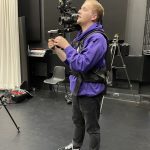 Lecture vs Seminar?! What is the difference?
Lecture vs Seminar?! What is the difference?





